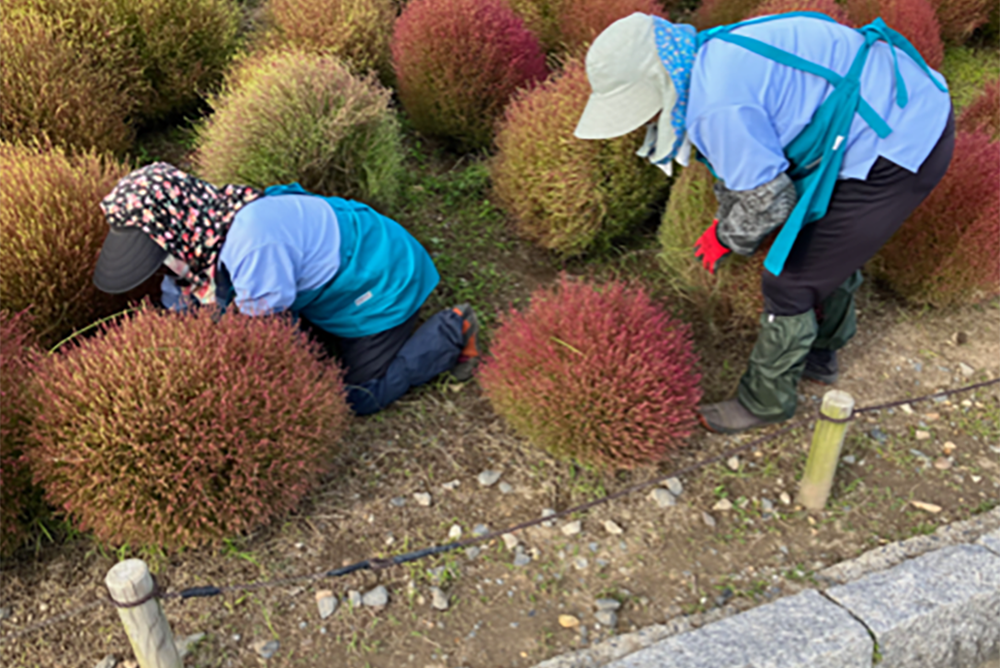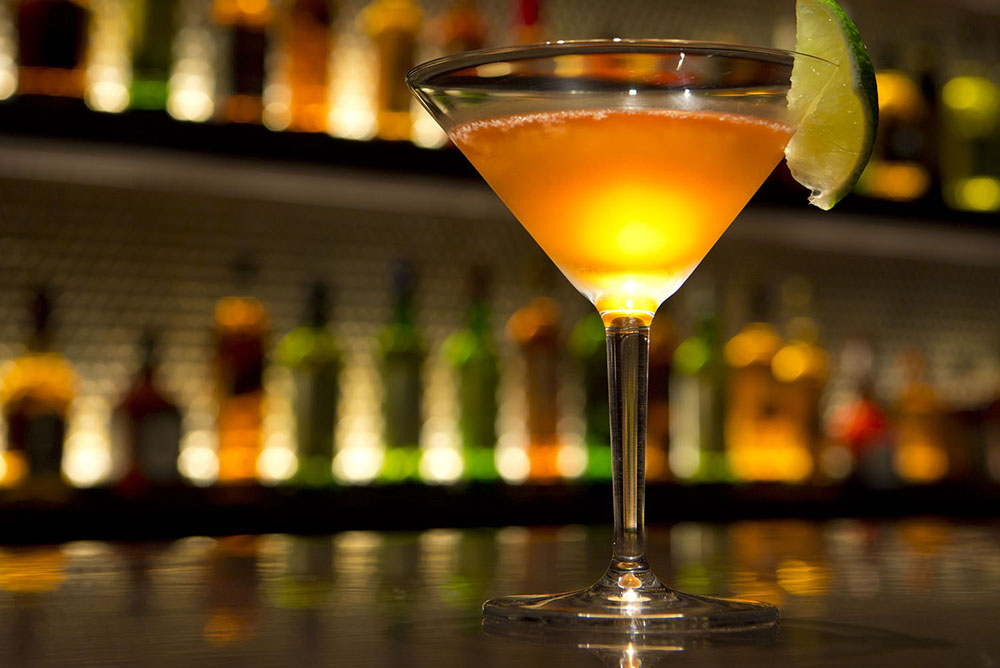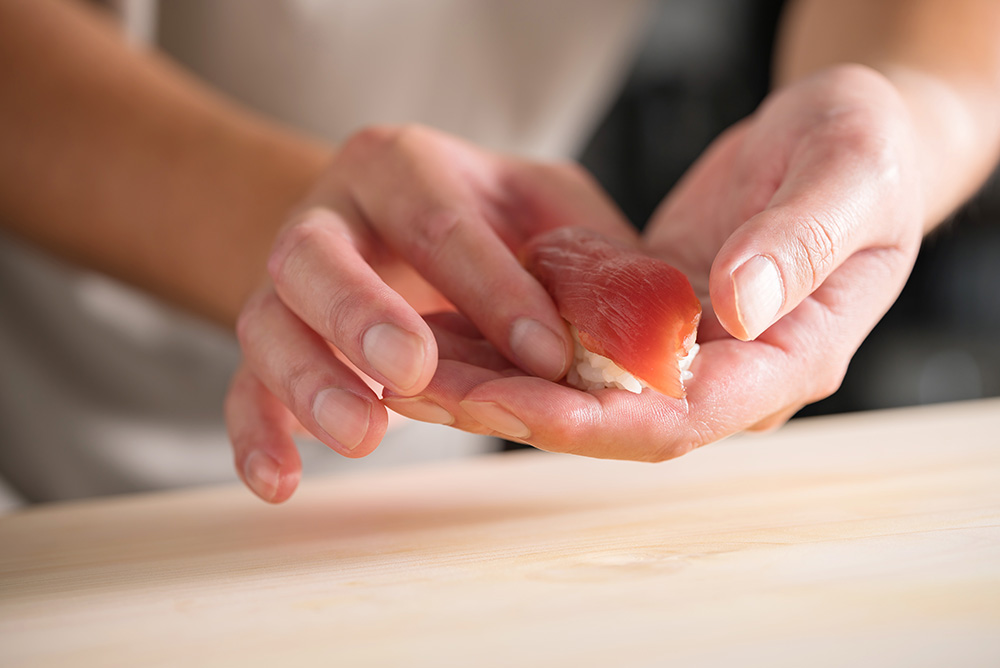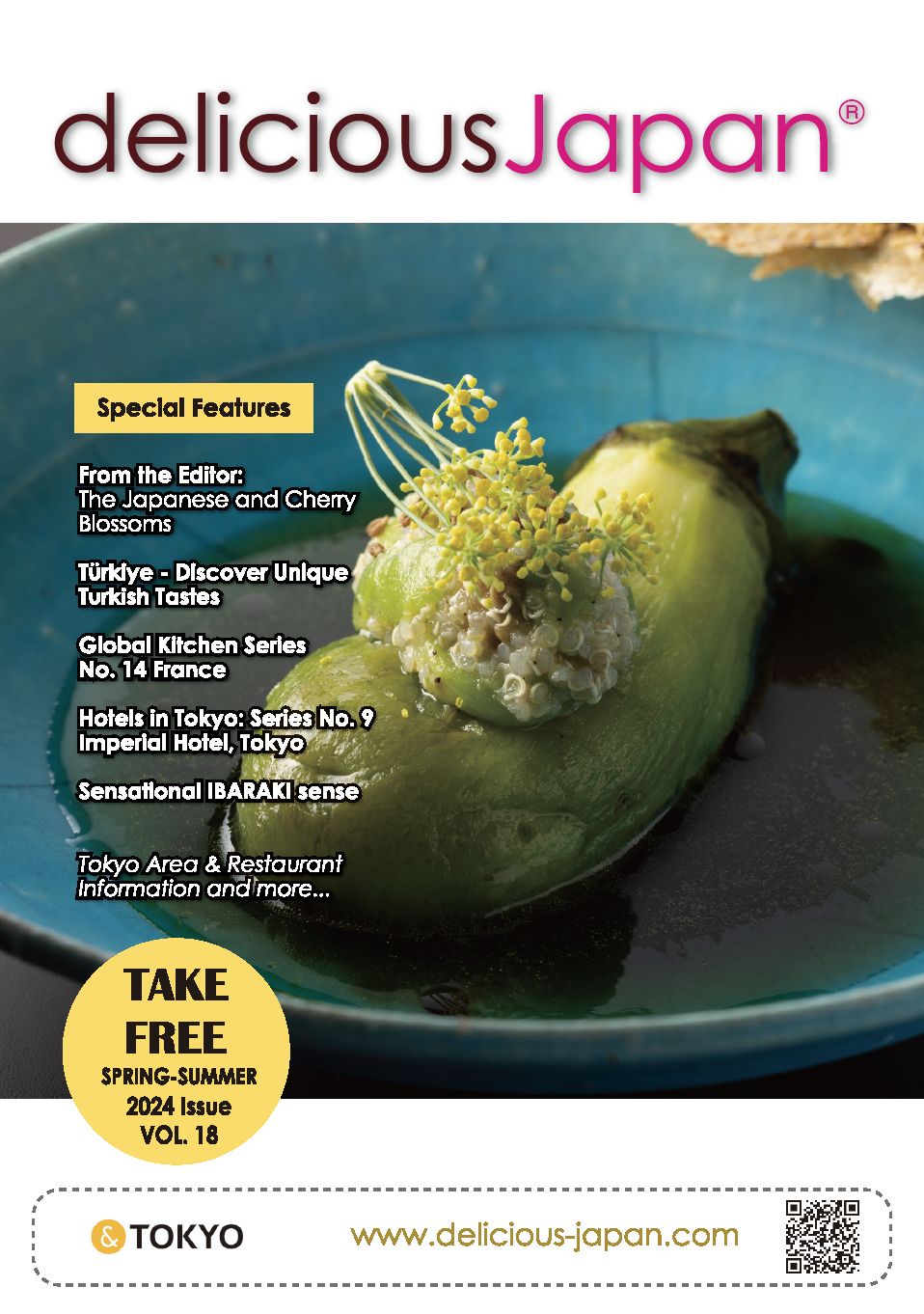Grand Hyatt Tokyo
David Bellin
Executive Sous Chef - Banquet Cuisine, Grand Hyatt Tokyo

I wanted to become a chef from a very early age. Growing up on a farm in the Poitiers region of France, I was surrounded by nature and fresh ingredients. I spent time helping my father prepare the farm’s fresh produce as a child, but my mother’s wonderful cooking had the biggest influence on my decision. She used to make simple but tasty dishes from fresh meat and vegetables sourced locally, which has had a big impact on my culinary philosophy.
As a banquet chef, you cook for a large group at once, but compared to cooking for individual orders at a restaurant, what are the challenges and rewards of banquet cuisine?The biggest challenge for banquet chefs is consistency: providing each guest with excellent presentation, quantity and flavor, all at the same time. As we welcome guests from all over the world, we also receive a lot of special requests from customers with allergies or dietary requirements, such as vegetarian, gluten-free, halal and kosher menus. For large groups, this requires a lot of preparation and menu adjustments to ensure that all of our guests can enjoy our meals.
However, it is incredibly rewarding when everything comes together. At Grand Hyatt Tokyo, we are privileged to be a part of many spectacular events, including weddings and other once-in-a-lifetime celebrations. While working at our open kitchen in front of the guests, we are often able to see the guests’ surprise and delight as they enjoy our food. Contributing to those unforgettable moments for our guests makes all the preparation worth it.
Since many of the banquet guests cannot choose their menu in advance, we always try to provide some crowd favorites that everyone can enjoy. Many of the guests enjoy meat dishes like smoked salmon, beef and tuna, while our fresh homemade bread is always very popular. Both domestic and international guests also love to experience Japanese food during events. Our local dishes, such as sushi, maki sushi and beef sukiyaki, are often a memorable highlight.
Tell us about your efforts in creating new recipes and menus.Creating a banquet menu is very different from creating a menu for a restaurant. The menu is often selected by the event organizer ahead of time, and the guests may not have the option to choose their own dishes. Since the guests often do not know anything about the food options beforehand, it is very important that each dish is easily recognizable without needing to consult a menu. This is true for all of the menus that we create for different types of events, which can include buffet menus, course menus, cocktail menus, special requests and, of course, wedding menus.
When creating new recipes and dishes, the most important thing is to use fresh, local produce. Dishes also need to be visually appealing, to entice the guest even if they did not have the chance to choose their food.
Our culinary philosophy is built around fresh, seasonal produce, particularly in Japan where there is a strong focus on the progression of flavors throughout the year. As a result, we serve all of our menus for roughly 6 months before we change and adapt them. We want our menus to match the flavors of the season as closely as possible even while we cater for very large groups.
For all our produce, we work with long-term suppliers who know our requirements and standards, across everything from meat and fish to vegetables, salads, herbs and fruits. Quality is absolutely essential, and we work closely with our suppliers to ensure that it is maintained across the large quantities we require. We also have partners who help us to cater for special menus and dietary requirements, such as halal food, and we can source food from outside in special cases.
It is always a pleasure to visit food producers and taste local produce, and the tour of Ibaraki Prefecture was inspiring. From the wagyu, chestnut and organic vegetable farms to the sake distillery, every person we met in Ibaraki was incredibly passionate about their produce. When you meet people who care so much about quality and flavor, it is very motivating to use their products. I hope we will be able to showcase some of these ingredients at Grand Hyatt Tokyo’s 10 restaurants and bars.
How would you define "hospitality (omotenashi)," Chef Bellin?Omotenashi is difficult to define, but for me it is about respect. As a chef, respect for the product and respect for flavor comes before everything else. Without ingredients and the people who prepare them, there would be no chefs. Our job is to match the effort that came before as we prepare our dishes. That passion and respect is what creates unforgettable dining experiences for our guests.
About Chef Bellin
Born in Poitiers region of France in 1974, Chef Bellin grew up in an environment surrounded by nature and fresh ingredients and dreamed of becoming a chef at a very early age, with his mother’s excellent cooking as the main influence.
Chef Bellin has extensive experience in French cuisine, working as Sous Chef at three-star Michelin restaurants, “Restaurant Alain Ducasse” in Paris and “Le Louis XV–Alain Ducasse” in Monte Carlo. In 2004, he was selected as Chef de Cuisine for the opening of “Beige Alain Ducasse Tokyo” in Ginza and thereafter as Chef de Cuisine of bistro “Benoit” in Aoyama. As key chef at Group Alain Ducasse for 15 years, and having worked with renowned French master chef Alain Ducasse , Chef Bellin takes on the philosophy of cherishing ingredients. He joined Grand Hyatt Tokyo in 2011 as Executive Sous Chef of Western Cuisine. With his outstanding performance, Chef Bellin has became Executive Sous Chef of Banquet in 2019, overseeing the culinary operations of banquet events at the hotel.





